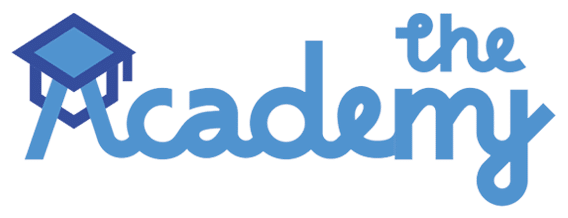COMPOUNDING
This refers to the formation of a word by combining two or more distinct words. Compound words take on a new meaning that is clearly connected to the meanings of the individual words. For instance:
1. **Toothpaste** – «tooth» + «paste»
2. **Airplane** – «air» + «plane»
3. **Mailbox** – «mail» + «box»
4. **Firefighter** – «fire» + «fighter»
5. **Sunglasses** – «sun» + «glasses»
6. **Basketball** – «basket» + «ball»
7. **Bedroom** – «bed» + «room»
8. **Hamburger** – «ham» + «burger»
Compound words don’t always appear as a single word; they can sometimes be hyphenated or written separately. For instance, you might encounter «traffic lights» or «ice-cream.» Some compound words, like «ice-cream,» can be written both with or without a hyphen.
DERIVATION: PREFIXES AND SUFFIXES
This process is typically achieved through the addition of a suffix or a prefix, known as suffixation and prefixation, respectively. For example:
**Suffixation** (Adding a suffix to the base word):
1. **Help** (verb) + **-ful** = **helpful** (adjective)
2. **Joy** (noun) + **-ous** = **joyous** (adjective)
3. **Create** (verb) + **-ion** = **creation** (noun)
4. **Succeed** (verb) + **-ful** = **successful** (adjective)
5. **Friend** (noun) + **-ship** = **friendship** (noun)
**Prefixation** (Adding a prefix to the base word):
1. **Do** (verb) + **un-** = **undo** (verb)
2. **Happy** (adjective) + **un-** = **unhappy** (adjective)
3. **Tie** (verb) + **re-** = **retie** (verb)
4. **Spell** (verb) + **mis-** = **misspell** (verb)
5. **Appear** (verb) + **dis-** = **disappear** (verb)
These examples illustrate how suffixes and prefixes can be used to modify the meanings or grammatical forms of words in English.
CONVERSION
Conversion occurs when a word transitions from one grammatical word class to another. For instance, the verb «to google» is derived from the noun «Google,» or the noun «read» (as in «a good read») is derived from the verb «to read.» Here are some examples:
1. **Noun to Verb**:
– «She decided to paper the walls with her artwork.»
– «He hopes to medal in the upcoming competition.»
2. **Verb to Noun**:
– «The sudden stop of the car was a real jolt.»
– «Her swim was a fast 100 meters.»
3. **Adjective to Noun**:
– «The meek shall inherit the earth.»
– «He appreciated the exotic in his cooking.»
4. **Noun to Adjective**:
– «The ocean view from the hotel room was breathtaking.»
– «His love for the arts was evident in his collection.»
5. **Adjective to Verb**:
– «They tried to green their neighborhood by planting more trees.»
– «She aimed to sweeten the deal with additional perks.»
Conversion allows for flexibility in language, enabling words to adapt and be used in various grammatical forms based on context and need.
BLENDING
This process involves combining parts of two distinct words to create a new word by merging the sounds of these words. It is highly prevalent in the English language and generates numerous new words each year, often blending the meanings of the original words. While some of these creations are informal, many have become integral parts of standard English. Here are a few examples:
1. **Brunch** – «breakfast» + «lunch»
2. **Infomercial** – «information» + «commercial»
3. **Smog** – «smoke» + «fog»
4. **Guesstimate** – «guess» + «estimate»
5. **Glamping** – «glamorous» + «camping»
6. **Spork** – «spoon» + «fork»
7. **Frenemy** – «friend» + «enemy»
8. **Email** – «electronic» + «mail»
These examples demonstrate how blending two words together can create new terms that often capture the essence of both words’ meanings. This process is a common source of innovation in the English language.
ABBREVIATION
Abbreviation is the process of forming a shorter word or phrase from a longer one, either by shortening it or by using only part of the original word. There are generally two types of abbreviation: clipping and acronyms.
– **Clipping**: This involves shortening a word by omitting one or more syllables or sounds. For example:
1. «Examination» becomes «exam»
2. «Television» becomes «TV»
– **Acronyms**: Acronyms are formed by taking the initial letters or syllables of a phrase and creating a new word from them. For example:
1. «North Atlantic Treaty Organization» becomes «NATO»
2. «Central Intelligence Agency» becomes «CIA»
Both clipping and acronyms are common methods of creating abbreviations in the English language.
NEOLOGISMS
This process involves creating entirely new words without relying on clipping, acronyms, or other word formation methods. Such newly coined words are often referred to as «neologisms.» Here are a few examples:
1. **Blogosphere** – Refers to the collective community of all blogs and bloggers on the internet.
2. **Cyberbullying** – Describes the act of harassing, threatening, or intimidating someone online.
3. **Meme** – Denotes a cultural element (idea, behavior, style) that spreads rapidly on the internet.
4. **Selfie** – A self-portrait photograph taken with a smartphone or camera, typically shared on social media.
5. **Emoji** – Small digital images or icons used to express emotions, ideas, or concepts in electronic communication.
6. **Google** (as a verb) – To search for information on the internet using the Google search engine.
These words have emerged to describe new concepts and phenomena that have arisen in our modern world, showcasing how language evolves to meet the needs of communication in changing times.
Neologisms are a natural part of language evolution and are constantly being introduced to describe new concepts, technologies, or cultural phenomena.
CREATIVE RE-SPELLING
It entails altering the spelling of a word to enhance its practicality, appeal, or to serve a specific purpose, often related to business or marketing. For instance:
1. **Through** –> **thru**
2. **Express** –> **Xpress**
3. **You** –> **u**
4. **Fantastic** –> **fantastik**
These modifications in spelling are typically done for reasons like brevity, ease of typing, or to create a distinct brand identity.
LOAN WORDS
In linguistics, a borrowing occurs when we directly incorporate a word from a foreign language into our own. English contains numerous examples of loanwords, such as:
1. **Ballet**
2. **Cliché**
3. **Taco**
4. **Karaoke**
5. **Gourmet**
6. **Fiancé**
Typically, when we borrow a word, the spelling remains largely unchanged. Nevertheless, some alterations may happen, such as adapting the word for pluralization when the original language lacks a plural form. In terms of pronunciation, we usually pronounce loanwords with an English accent, leading to slight variations from their original pronunciation.
DOWNLOAD A LIST
Descárgate una lista de WORD FORMATION aquí.
Si te interesa aprender más sobre las reglas gramaticales y curiosidades del idioma, en The Academy ofrecemos clases de inglés en Granada en donde aprenderás de la manera más entretenida y práctica. Cumple tu meta de aprender inglés, contacta con nosotros y consulta sobre los cursos que podemos ofrecerte. Siempre tendrás la alternativa de elegir el más adecuado a tus necesidades.
• Director del centro
• Administración del centro
• Exámenes


